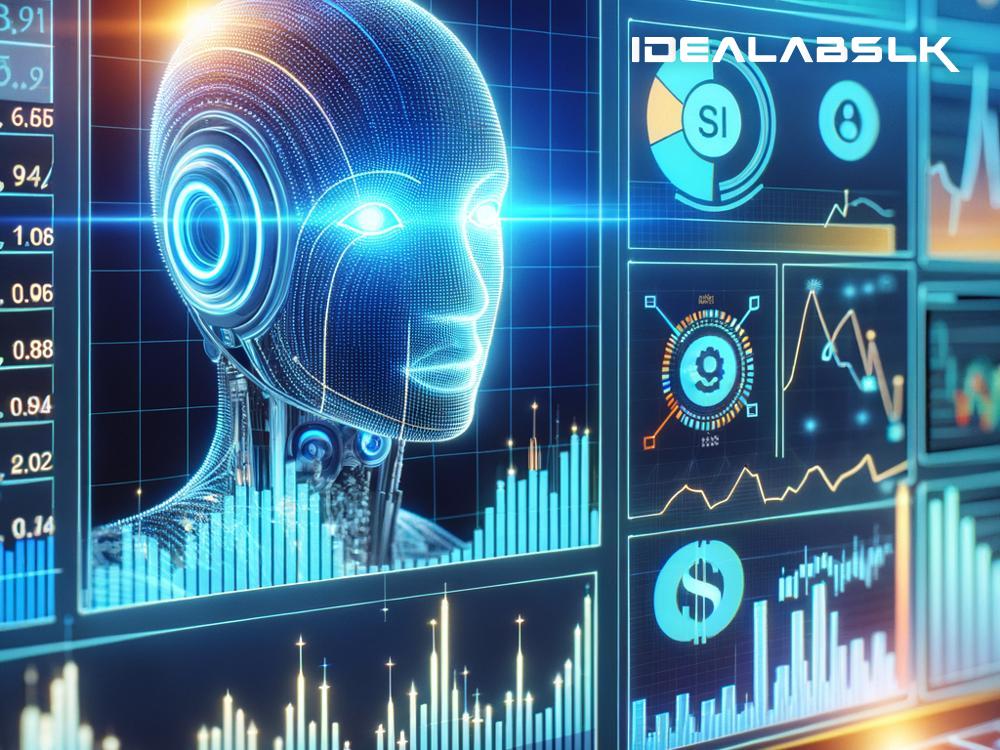AI for Trading: How Data Revolutionizes Stock Market Predictions
In the world of stock trading, having a crystal ball to predict the future would be a dream come true. While we might not have magical powers, we do have something almost as impressive: artificial intelligence (AI). The integration of AI into the trading world is transforming how investors make decisions, enabling them to harness vast amounts of data to forecast market trends with remarkable accuracy. So, how does this technological marvel work, and why is it becoming an indispensable tool for traders? Let's dive in.
Understanding AI in Simple Terms
First off, what is AI? Imagine you have a super smart robot friend that can read, understand, and analyze information faster than any human. This robot isn't just quick; it's also capable of learning from its experiences, improving its skills over time. This is what AI does; it processes data, learns patterns, and makes predictions or decisions based on its learning.
The Role of AI in Trading
The stock market is like a giant, complex puzzle with countless moving pieces. Prices fluctuate due to various factors, including economic indicators, company performance, global events, and even the sentiments people express on social media. Keeping track of all these variables is a daunting task for humans, but not for AI.
AI can digest this massive amount of data from different sources, analyze it instantaneously, and identify trends or patterns that might be invisible to the human eye. It's like having a bird's-eye view of the entire market with the ability to zoom in on minute details whenever necessary.
Predicting the Market with Data
One of the key ways AI is used in trading is through predictive analysis. By examining historical data and current market conditions, AI algorithms can forecast future price movements with a degree of accuracy previously thought impossible. This doesn't mean AI can predict every swing with 100% certainty; the market is far too volatile for that. However, it can significantly improve the odds of making successful trades.
For example, let's say a particular stock has historically gone up after certain economic reports are released. An AI system can identify this pattern and alert traders before the report is public, giving them a valuable head start.
Customizing Trading Strategies with AI
What's truly groundbreaking about AI in trading is its ability to tailor strategies to individual investors. Not everyone has the same risk tolerance, investment goals, or financial situation. AI can take these personal factors into account, along with global market conditions, to suggest the most suitable trading strategies.
Moreover, AI can constantly adjust these strategies based on new data. If market conditions change or if a certain approach isn't delivering the expected results, AI systems can pivot quickly, optimizing strategies in real-time. This level of adaptability is something human traders can find challenging to achieve on their own.
Making Sense of Sentiments
Another fascinating aspect of AI trading is its ability to understand and quantify human emotions. By analyzing social media posts, news articles, and other forms of public communication, AI can gauge the general sentiment towards a stock or the entire market. This sentiment analysis can be incredibly powerful, as public perception often drives market movements.
For example, if AI detects a sudden surge of negative sentiment towards a company due to a scandal, it might predict a drop in that company's stock price. Traders can use this information to adjust their positions accordingly.
The Future of Trading is Here
The integration of AI into trading is not just a futuristic concept; it's happening now, and it's reshaping how the stock market operates. By leveraging data and advanced analytics, AI empowers traders to make more informed, strategic decisions. However, it's essential to remember that AI is a tool, not a guaranteed win. Successful trading still requires a mix of technology, human intuition, and financial savvy.
As we move forward, the role of AI in trading is only expected to grow, becoming more sophisticated and integrated into all aspects of the investment process. For traders willing to embrace this technology, the future looks promising, offering new opportunities to navigate the complexities of the stock market with confidence and precision.
In conclusion, AI for trading is more than just a trend; it's revolutionizing how we understand and engage with the stock market. By harnessing the power of data, AI is opening up new paths to improved market predictions, personalized trading strategies, and deeper insights into the ever-changing world of finance. As we continue to unlock the potential of artificial intelligence, the possibilities seem almost limitless.

